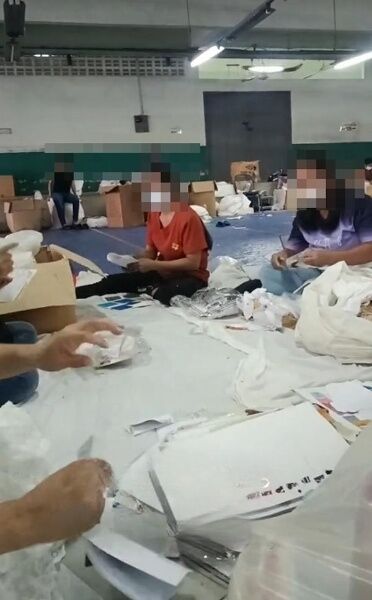Lace runs out: Crystal textile industries unravels, leaving 97 jobless

Crystal Textile Industries Ltd., a lace manufacturer established 34 years ago, closed its factory due to a lack of orders, leaving 97 employees jobless. Located in Soi Wat Kusang, Suksawat Road, Samut Prakan, the company faced insurmountable financial difficulties.
Crystal Textile Industries Ltd., which specialised in lace embroidery and exports, was a joint venture between Thai and Indian entrepreneurs. The decision to close was made due to a significant decline in customer orders, which made it financially unsustainable to continue operations.
The factory officially shut down yesterday, leaving 97 employees without jobs. The company has ensured that all employees receive their legally mandated compensation. Despite the unfortunate circumstances, the employees expressed gratitude for the company’s support, said a company spokesperson.
“We have come a long way in 34 years. The factory has finally reached its end. The company tried its best to sustain us but couldn’t overcome the financial burdens and lack of orders. We appreciate that they have taken care of our compensation as per the law.”
Crystal Textile Industries Ltd., had a registered capital of 36 million baht and was well-known for its high-quality lace products, which were exported to various markets. However, the global economic downturn and declining demand for lace products severely impacted the company’s operations.
The company’s closure highlights the challenges faced by traditional manufacturing sectors in adapting to changing market conditions. The lace industry, in particular, has been hit hard by shifts in fashion trends and the rise of fast fashion, which demands quicker turnaround times and lower costs.
One factory worker posted a heartfelt message on social media.
“Tonight is our last night shift before the factory closes. Sending best wishes to all my colleagues. May we all find new opportunities soon.”
Layoff impact
The factory’s closure is a significant blow to the local community, which has relied on the company for employment and economic stability. The employees, many of whom have worked at the factory for decades, now face the daunting task of finding new jobs in a challenging economic environment.
The company’s downfall also reflects broader issues within the textile industry, which has faced increasing competition from low-cost producers in other parts of the world. Many traditional textile manufacturers have struggled to compete with the lower prices offered by factories in countries with cheaper labour costs.
Despite these challenges, the employees remain hopeful for the future. The company has encouraged them to look for new opportunities and has provided support during the transition. The community has also rallied around the workers, offering assistance and encouragement as they navigate this difficult period, reported Sanook.
“Although we are sad to see the factory close, we are thankful for the years of employment and support we received. We will miss our workplace and colleagues but are hopeful for new beginnings.”
Latest Thailand News
Follow The Thaiger on Google News:


























